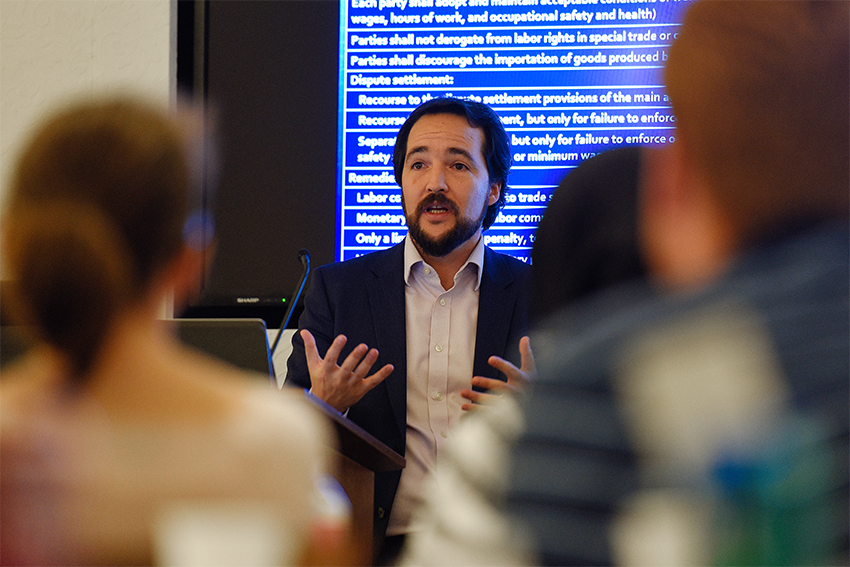Labor, inequality and human rights in international partnerships were the focus during the Rapoport Center’s final conversation of the semester on Monday.
Alvaro Santos, law professor at Georgetown University, used the Trans-Pacific Partnership as a lens to view where workers’ rights fall in trade agreements. Earlier this month, 11 countries, including Mexico, Japan and Australia, agreed to move forward with the partnership without the U.S. after President Donald Trump pulled the country out of the partnership immediately after entering office. Although the U.S. is no longer in the partnership, Santos said it is important to discuss it because it still remains the latest example of mega-regional negotiation.
“The rules that were agreed on still serve as a point of reference for other negotiations,” Santos said. “Countries are drawing on those rules and it stands as a mode of governance that can influence and serve as an example for other future free trade agreements.”
Santos talked about why representatives of the U.S. labor movement were against the TPP even though it seemed to have the most protections for workers. One reason he mentioned was how, although TPP required partners to adopt obligatory worker protection laws, the deal allowed the parties themselves to determine if they met those obligations.
The idea that a better labor chapter in the agreement would have dissolved competitive advantage between people in industrialized and developing countries is an illusion, Santos said.
“The labor advocates really hit the mark (when) they realized that the labor chapters — even if they were well designed — have problems,” Santos said.
Labor chapters are just one of many parts of policy that should be taken into consideration to remedy what many labor groups are experiencing today, Santos said.
“In my view, trade agreements stand in for the development policy of the (developing) country, Santos said. “The most successful examples of growth and wealth for workers have been the countries that have managed to grow with a variety of industrial policies, and we need to think broader than labor chapters.”
Journalism senior Mia Uhunmwuangho is an intern at the Rapoport Center. She said in complex and dense conversations like this one, it’s important to remember why they matter.
“I think that we should all care about these things because the world is so globalized and interconnected that labor laws that are affecting Japan or Burma will always somehow have an effect on the United States,” Uhunmwuangho said.





















